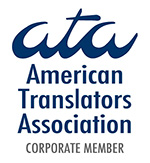Are you ready to level up as a professional translator? Or maybe you are just getting started, and want to make sure your new clients are impressed by your professionalism?
You’ve done the hard part: learned a second language to the point of fluency, become an efficient and thorough researcher, developed your proofreading eye and your writing skills. What else could you be doing so that clients keep coming back to you, and choose you out of your many competitors?
To really impress your clients and come across as a professional, here are some tips that will keep your clients happy and your rates high.
- When you respond to an e-mail, reply to the e-mail you were sent, instead of starting a new thread. Think about the translation project manager: he or she is probably juggling a dozen jobs, maybe hundreds of files, all with rush deadlines. If you respond in a new e-mail thread, it takes the PM more time to track down what job you are responding to. Keeping everything in one thread also makes it much easier for the two of you to work out the terms of the job and refer to them later if there are any ambiguities (deadline, instructions, etc).
- Respond in full sentences. Replying “Yes” to an e-mail with several questions doesn’t answer any of them! “I confirm the deadline and your instructions, and am starting work now.” does wonders to reassure a frazzled PM!
- Respond right away, even if you can’t take the job. Translation project managers hate to waste a lot of time waiting for responses to e-mails, and therefore will naturally gravitate towards translators who respond right away, even if they can’t take the job. That way they at least know they can move on to contact the next translator. At Meridian Linguistics, we save mass e-mails for only the most dire situations, because we know that it is frustrating to accept a job only to have it assigned to someone else in the end. So when we e-mail you, we are usually waiting for your response before we contact someone else.
- Communicate about deadlines. Ok, most project managers will agree this is actually a very important thing to do! If you think you may be late meeting a deadline, e-mail your project manager with the estimated delay. Emails like “I’ll deliver soon” aren’t actually very helpful, a PM is left wondering if “soon” means fifteen minutes, two hours, or after a full night’s rest! Definitely do not continue working on the file while ignoring messages from your client, as this means the PM will frantically start working to reassign the whole file and notifying the client of delays, even though you may be very close to done. Be aware: that file might have been urgently needed at court, or for a presentation to a CEO in town for only an hour. You always have the best shot at mitigating the damage if you notify your client in advance, and let them decide the best way to help you finish the job: whether that means reassigning a small portion to someone else, or begging the end client for an extension.
- Don’t take more than you can handle. When you are offered a job, open the file right away and take a good hard look before you accept it. Are you comfortable with the subject matter? Can you handle that size by deadline? Do you have any other commitments that could interfere with on-time delivery? Remember that most translators can translate 2,000-3,000 words per day. If you accept a project but cancel five hours later when you finally open the file, it can cause serious difficulties for your client.
- Name files intuitively. The best practice in filenaming, unless instructed otherwise, is to leave a filename as is, appending the language or your name at the end. For example, if the source file is “002915 Prospectus”, you might name it “002915 Prospectus_English”, or “002915 Prospectus_Mariana”. It is very important not to rename the file something vague like “Spanish translation” or “Project for Meridian” because this can create confusion and sometimes, a lot more investigative work for the project manager as the file moves along its many quality assurance stages on the way to the client. Likewise, it is a good idea to add something to the end of the filename to distinguish it from the original, so that you don’t accidentally attach the original instead of the translation!
- Insert Comments instead of writing your notes directly in the translation. This lets a Project Manager quickly identify issues to be resolved, instead of having to scroll carefully through each page in search of highlights or parentheses.
- Own your mistakes. No one is perfect. If you missed instructions or were late to a deadline, recognize it and apologize for it. This shows project managers that you are at least making an effort to be professional and that you don’t consider this to be your usual standard of quality. People make mistakes, and unforeseen events arise, but if you refuse to acknowledge the issue, a PM will be unlikely to trust you again.
- Notify loyal clients about vacations and time off, or changes in timezone. If you have a client you work with regularly, it is always a good idea to give them a heads up if your availability will change. Sometimes, it even works out for the best! Recently, we had a very urgent file come in at the end of the Korean work day, but we knew that one of our favorite Korean translators was working remotely from the UK that week. He was happy for the work outside of his usual timezone, and we were happy to place the file with a professional we trust!
- Use CAT Tools CAT tools can be expensive, but have you heard about SmartCat? It is a free online cloud-based CAT tool that lets you work on Trados and MemoQ files without purchasing expensive software. It also does your word counts for you! We love SmartCat at Meridian Linguistics, and if you’re willing to work in this software your clients will be happy to be able to give you jobs that require CAT tools.
Trust us, if you make a habit of these professional behaviors (even if you’re translating from a hammock in your PJ’s) you will build a loyal client base very quickly. Most clients carefully track their high-performing translators, and you can bet the Meridian database is full of notes from PM’s: “Responds quickly!” “great communication!” and “did us a big favor on 201654, use her first on next French job!” are just some comments you’ll find in our database about our trusted translation professionals.
Do you have any other good ideas for how to level up as a professional translator? Do you disagree with any of our ideas here? Leave your thoughts in the comments below!












Great ideas! I completely agree with them all. Nevertheless, it can be said that growing a portfolio of clients it’s not easy at all when you start making your way as a translator. Many agencies already have professionals they trust and for a beginner, that’s a lot of struggle as he/she has to quote for lots of jobs trying ti give the best offer so agencies will ask for a translation test first, and then, if successful, a project. From there, it’s just a matter of time to keep looking for agencies or projects and make yourself available for them. As I say, not easy. But every effort will pay off in time.
Enjoyed the article!. I’ve found most clients to be very friendly and helpful. As you say, they appreciate quick responses and like you keeping them up to date with your progress.
I’ve developed really good relationships with clients by showing that I want to be 100% sure of what the original text says before trying to decide how to translate it. Don’t worry about “annoying” them with messages regarding this! I’ve never had one client get annoyed by several messages about the same phrase even. By doing this they know they can trust you to do a great job, and I’ve even found errors in the original text which they have been so grateful for!
Loved this article! While everything mentioned here is highly relevant, taking a good, hard look is essential, I would say. Not even the subject matter expertise matters as much, in my opinion.
I recently had a situation which reminded me, once again, just how important this really is. After a very brief screening, I accepted the project. Legal translation, court case (did hundreds and hundreds of them, what could go wrong?) Well, when I started working on it, it turned out that the source text was actually some sort of a mumbo-jumbo-word salad that took me ages to decipher, edit, proofread and try to make it sound coherent in the target language (at least partially!)
So yes, carefully read and scrutinize the source text, before you accept the assignment, even if it sounds like something you did hundreds of times before. Another important tip I’d like to share is: always think of your portfolio as a work in progress, even if you have more than forty years of experience. I regularly update my resume and portfolio and add all the relevant and recent projects.
These all were extremely good advice, especially for those who are just starting. When I started working through Upwork I would apply to several jobs, being certain that most of them wouldn′t hire me. Nevertheless, a lot of clients answered me back, and I had a really frantic week translating almost 10.000 words per day (but I managed to comply with all the deadlines!).
However, maybe you should post a “The little things that make you a good client” telling them to be a little bit more patient. Last spring, I had a client for whom I had been translating different texts for a couple of weeks. Once, they wrote me at 7 AM (the client had a +1 hour time difference with me) to ask if I was available to translate. One hour later, when I was about to accept the offer, they had already hired somebody else to do it, and never contacted me again. I can understand they were in a hurry, but it really gave me a bad impression.